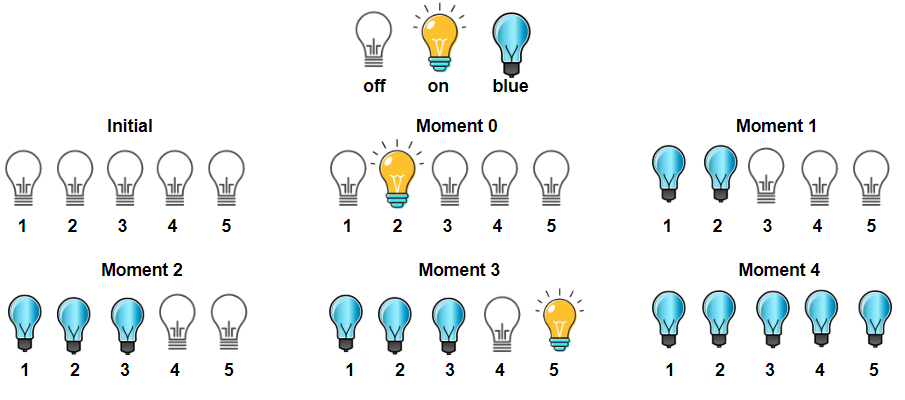There is a room with n bulbs, numbered from 1 to n, arranged in a row from left to right. Initially, all the bulbs are turned off.
At moment k (for k from 0 to n - 1), we turn on the light[k] bulb. A bulb change color to blue only if it is on and all the previous bulbs (to the left) are turned on too.
Return the number of moments in which all turned on bulbs are blue.
Example 1:

Input: light = [2,1,3,5,4] Output: 3 Explanation: All bulbs turned on, are blue at the moment 1, 2 and 4.
Example 2:
Input: light = [3,2,4,1,5] Output: 2 Explanation: All bulbs turned on, are blue at the moment 3, and 4 (index-0).
Example 3:
Input: light = [4,1,2,3] Output: 1 Explanation: All bulbs turned on, are blue at the moment 3 (index-0). Bulb 4th changes to blue at the moment 3.
Example 4:
Input: light = [2,1,4,3,6,5] Output: 3
Example 5:
Input: light = [1,2,3,4,5,6] Output: 6
Constraints:
n == light.length1 <= n <= 5 * 10^4lightis a permutation of[1, 2, ..., n]
Solution
Track the right most light l_k, all turned-on lights are blue if and only if the right most one is k, and there are exact k lights on right now.
Time complexity: O(n)
Space complexity: O(1)
C++
|
1 2 3 4 5 6 7 8 9 10 11 12 13 |
// Author: Huahua class Solution { public: int numTimesAllBlue(vector<int>& light) { int ans = 0; int right = 0; for (int i = 0; i < light.size(); ++i) { right = max(right, light[i]); ans += right == i + 1; } return ans; } }; |